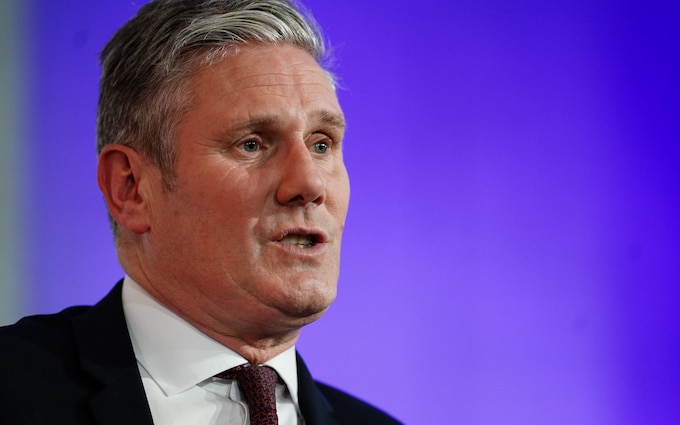
With 18 months or less until the next general election, Labour’s silence on critical matters of policy has become untenable. We know that the party’s leader Sir Keir Starmer has turned his back on the views of Jeremy Corbyn, even though he long served under his former leader. But voters will require rather more from a manifesto.
Tomorrow then, Sir Keir finally sets out his vision for NHS reform and health priorities. Yet as he does it is clear that many of the same old statist Labour instincts have endured any “transformation” under his leadership. Starmer will outline a vision of “an NHS fit for the future”. But when quizzed on practicalities on Sunday, Wes Streeting, the shadow health secretary, admitted that Labour has certainly not turned its back on the nanny-state, ministers-know-best attitude so familiar from years gone by.
The “heavy hand of regulation”, he conceded, is likely to be deployed against a swathe of products that Labour deems sinful. Alcohol? Labour cannot rule out minimum tariffs to punish anyone who might enjoy a glass. Smoking and vaping? Labour will go “a lot further” than the current government. And if Labour is not satisfied with telling individuals how to lead their lives, if it wins power it will quickly start ordering businesses about too. The current sugar tax? An exemplar of good policy, said Mr Streeting, who also criticised Nestlé; as it turns out, he has strict views on precisely how breakfast cereals should be formulated. At the end of several years in which Mr Starmer has promised us that much has changed about his party, it is clear that its bossy interventionism that constricts personal freedoms and corporate prosperity remains the same.
As for Labour’s idea to share waiting lists between hospital trusts, the party will need far more ambitious reform plans to improve the lives of patients, many of whom can’t see a GP to be referred to a hospital in the first place. Yet to Labour any talk of serious NHS reform is sacrilege.
Labour’s emerging plans for health should be a warning to those who know that the only real path to better healthcare in this country is to deliver a booming economy to fund it, while ruthlessly pruning the bloat and bureaucracy that cripples so many NHS services today. As Mr Starmer finally emerges from his policy purdah, it is dismally apparent that any administration he leads will do neither. DT.

.jpeg)
Labour’s NHS fix is pure nanny statism